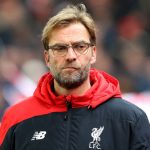A veritable living god as a player, Diego Maradona has yet to inspire the same fervour as Argentina national coach after a laborious and controversial World Cup qualifying campaign.
Argentina’s struggles to reach South Africa mean many fans are sceptical about his chances of leading the country to a third World Cup triumph.
Maradona, the inspirational captain of Argentina’s 1986 World Cup-winning side, was named national boss in November 2008 after a disappointing start to the qualifying campaign brought Alfio Basile’s tenure as coach to an end.
Fourteen years after he left the 1994 World Cup in disgrace following a positive drug test, Maradona returned to the Albiceleste with a two-pronged objective: take Argentina to the World Cup, and do it in style.
Over a year later, the first mission has been accomplished thanks to a 1-0 win over Uruguay on the last day of the qualification campaign, but not the second.
“We have to think about improving. Everything and in every sector,” said veteran midfielder and Maradona favourite Juan Sebastian Veron.
“We have to perform a deep analysis, as there are lots of things that didn’t work well.”
Cesar Menotti, coach of the Argentina team that secured the country’s first World Cup in 1978, was forthright in his criticism, saying: “Argentina seemed to have no ideas, they’re confused and disorganised.”
Menotti’s words echo those of the Argentine media, that, since a humiliating 6-1 defeat in Bolivia, have scorned Maradona for calling up over 100 players during his time in charge and meddling with his tactical systems.
Maradona responded vehemently in the wake of qualification.
“To all those who didn’t believe in us, and I apologise to the women, you can suck it and keep sucking,” he cried.
His words provoked a scandal and prompted FIFA’s disciplinary committee to issue a two-month suspension from all footballing activities, forcing him to miss the World Cup draw in Cape Town in December last year.
Maradona used the time off to heal a rift with team manager Carlos Bilardo that had polluted the atmosphere surrounding the team over a period of months.
The 49-year-old caught the headlines again when he required stitches after being bitten in the face by one of his dogs, but 2010 began in encouraging fashion on the pitch with an impressive 1-0 friendly win in Germany in March.
“The most important conclusion is that the team appears to have a defined playing philosophy. Debatable, certainly, but defined,” said Argentine sporting daily Ole.
Maradona had opted for “a defensive scheme based on pressing in many areas and individuality on the counter-attack,” remarked La Nacion.
It was a system that recalled the hard-working Argentina side that reached the 1990 World Cup final in Italy, where they lost 1-0 to West Germany.
Optimistic observers were also quick to recall that criticism had plagued the national side prior to their departure for the 1986 World Cup, but that team included a certain Diego Maradona.
“(Lionel) Messi is my Maradona,” says Maradona himself, but the Barcelona genius and 2009 European Footballer of the Year has to date struggled to recapture his Barca form in a blue and white shirt.
And the naysayers remain convinced that without an in-form Messi, Maradona will struggle to work miracles in South Africa.
- Soccer News Like
- Be the first of your friends!




















ABOUT THE AUTHOR
SoccerNews
Soccernews.com is news blog for soccer with comprehensive coverage of all the major leagues in Europe, as well as MLS in the United States. In addition we offer breaking news for transfers and transfer rumors, ticket sales, betting tips and offers, match previews, and in-depth editorials.
You can follow us on Facebook: Facebook.com/soccernews.com or Twitter: @soccernewsfeed.